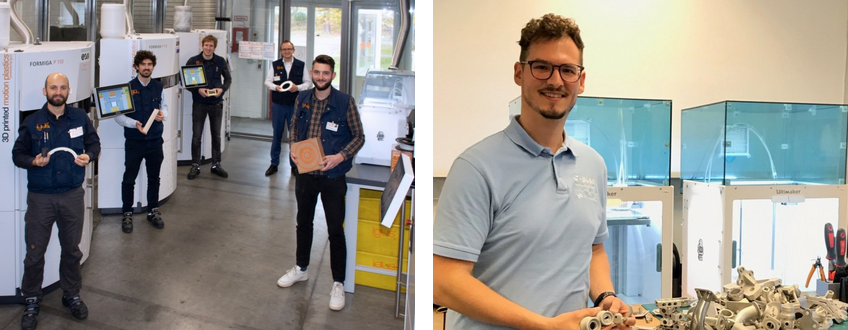Ultimaker, the global leader in professional 3D printing, launched its inaugural Innovators List: a celebration of the most unexpected, game-changing and inspirational uses of 3D printing across business and education this year. While 2020 turned out to be a year of disrupted supply chains and lifestyles, working from home drove unexpected digital collaboration and strengthened creativity and innovation. The 2020 Innovator List includes more than 25 visionaries using 3D printing to transform the way people work, think, and live, from the development of face masks, the production of bionic prosthetics, motorcycle parts and bespoke lingerie.
These visionaries are the ones who maintain their original sense of child-like wonder and curiosity when it comes to new technologies.
One of the innovators on the inaugural list is Jeremy Robinson, Motocross Racing Technologist at Kawasaki Motors Corp., USA. His team often have an urgent need for different custom parts for the Kawasaki KX™450 motorcycle to fit their riders’ specific needs. “In our sport we sometimes only have 24 to 72 hours to solve complex issues that might arise from the previous race event before heading to the next one. 3D printing in-house gives us the opportunity to create solutions to problems in a short timeframe and a competitive advantage.”
Lidewij van Twillert uses the technology for a very different reason. She is an innovator who decided to use 3D printing to create a custom, patented breast support element called the Curvearis, which precisely follows body curves and is based on a personal 3D body scan. On a larger scale, L’Oréal was able to use its industrial 3D printer network to develop and provide COVID-19 Personal Protection Equipment (PPE) for collaborators and frontline services. Matthew Forrester, Additive Manufacturing Manager at L’Oréal says the company launched two 3D printed perfume designs onto the market. “We are benefiting 3D printing in the rapid prototyping of new packaging designs every day.”
Material choice is one of the key considerations for an engineer when it comes to product development. Niklas Eutebach, Development Engineer for Additive Manufacturing at the German company igus GmbH notes: “We won’t rest until every conceivable material can be 3D printed - plastics, metals, ceramics, composites, fibres, concrete, organic tissue, meat, moon dust. Igus’ team focuses on the development of tribologically optimized polymer for industrial components. These polymers and compounds – called “motion plastics” – enable the manufacture of functional parts used in moving applications, enabling wear detection and failure prevention. At the German chemical company BASF, Tobias Rödlmeier is working on metal FFF projects. The team rethinks design and creates tools that bring about unique, previously impossible results. “The most sustainable success and benefits for customers are achieved when interdisciplinary and cross-company teams work together”, Tobias says.
www.ultimaker.com

 Deutsch (Germany)
Deutsch (Germany)  Polski (PL)
Polski (PL) 










